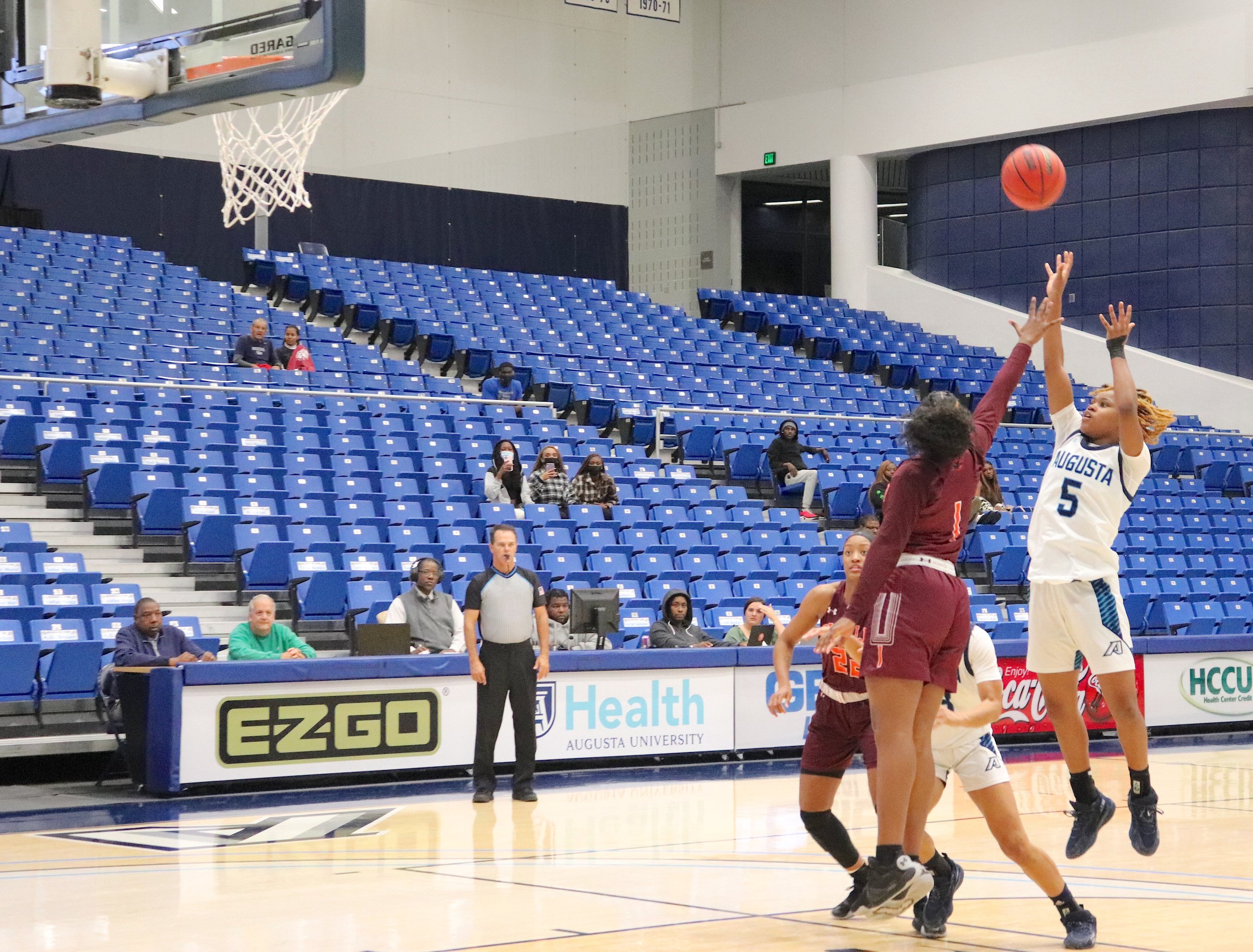UGa. football is No. 1 in the land, but the pandemic is still looming
By Shelbie Summerlin | Sports writer
The University of Georgia football team has been dominating opponents left and right this season, and their fans are dominating the stands, packing into Sanford Stadium every home-game weekend.
Dawg fans have also been traveling to away games in waves of red to support their top-ranked team, filling the stands from every corner down to the sideline seats.
The heavily packed crowds in the stands are bringing the energy, but are there people bringing COVID and spreading the virus to others?
Certainly, matters are better this fall than last when most teams started the season at least a month late with an abbreviated schedule, many games were cancelled, crowd size was reduced down to a quarter of capacity or less, and some conferences chose not even to play.
That’s not to say things are completely back to normal. The California-USC of Nov. 13 was moved back to Dec. 4 because of a COVID-19 outbreak in the Golden Bear football team. More than 20 Cal players had missed the Arizona game with the virus, and members of the coaching staff also tested positive. Illinois Coach Bret Bielema has contracted the virus and will miss this Saturday’s game with Iowa.
Earlier in the season, just before the Clemson game, Georgia’s head of sports medicine, Ron Courson, was diagnosed with COVID-19. Several Bulldog players also had tested positive before the home opener in September. So the virus is still out there.
I wanted to look at some statistics on COVID cases at the University of Georgia. According to the UGa. Health Center, the total amount of vaccines administered is 30,203 and 537 of those were administered the week of Nov. 8-14. For the same week, DawgCheck Results show that COVID cases at UGa. were at the lowest point for the semester with a total of only 29 positive COVID tests.
There has been an understandable worry of high attendance at college football games potentially causing a rise in COVID at universities. There was a high peak of COVID cases at the end of August leading into the beginning of September, but since then, even after a semester of packed Georgia football games, there had been a steady decline in case numbers in Athens and throughout the state.
Nationally, the numbers had been going down, but in the last week the trend has reversed and the number of cases is on the uptick again, although very gradually. That’s also the case in Georgia, where there has been a very small uptick in recent days, with the most positives coming in Atlanta. (Some 1.62 million Georgians have tested positive for COVID-19, with nearly 29,000 deaths, according to the New York Times. The Georgia Department of Public Health reports the confirmed number of positives is almost 1.28 million with nearly 30,000 confirmed and probably deaths from the virus.)
I am fully vaccinated and believe that getting the vaccine is a personal choice. Vaccination status does not sway my feelings or thoughts about someone. Unvaccinated and vaccinated people can get COVID, and most college students are one of the groups least likely to be affected, so I believe the vaccine is important, especially for the elderly, but I do not believe it should be forced on people. An exception would be people in the medical field working with patients with poor immune systems and in hospitals where the coronavirus is rampant, but that’s a whole different conversation.
UGa. football games are a top-tier event to attend. There is always high intensity. I love the setting; it is a special place to be. The fans at Sanford Stadium are all together in red and black, between the hedges. For the players, I believe the energy in the stadium helps the team push to compete on the field, and it is not the same when the fans are not there, or reduced to around 24,000 as was the case in 2020. As a student-athlete, I can say that competing in front of fans creates an energizing and motivating aura that makes you feel like you have the whole world behind you.
The novel coronavirus is dangerous, and people should be cautious, but there is the debate of continuing normal life or living in fear. I believe precautions can and should be taken, but for the people who do not want to keep themselves safe, such as attending jam-packed football games unvaccinated and not wearing masks, they will just have to deal with the consequences if they appear.
Contact Shelbie Summerlin at ssumerlin@augusta.edu.



